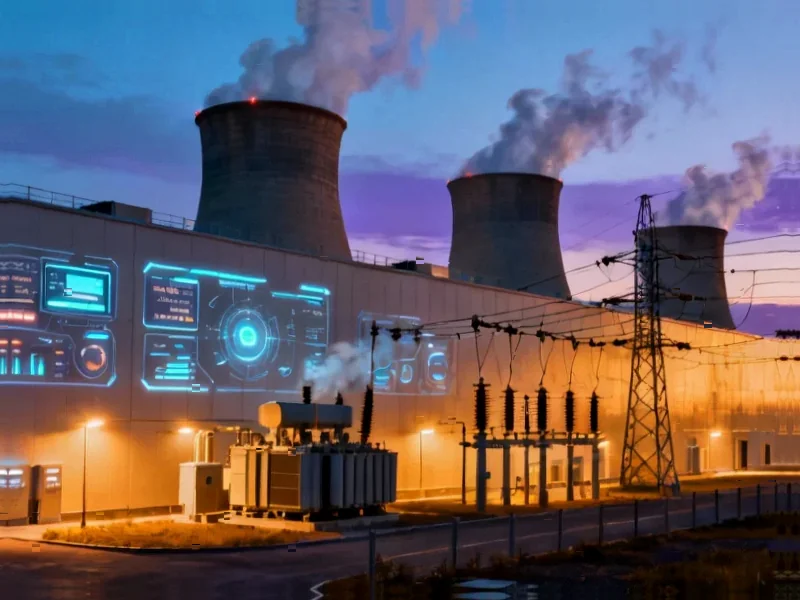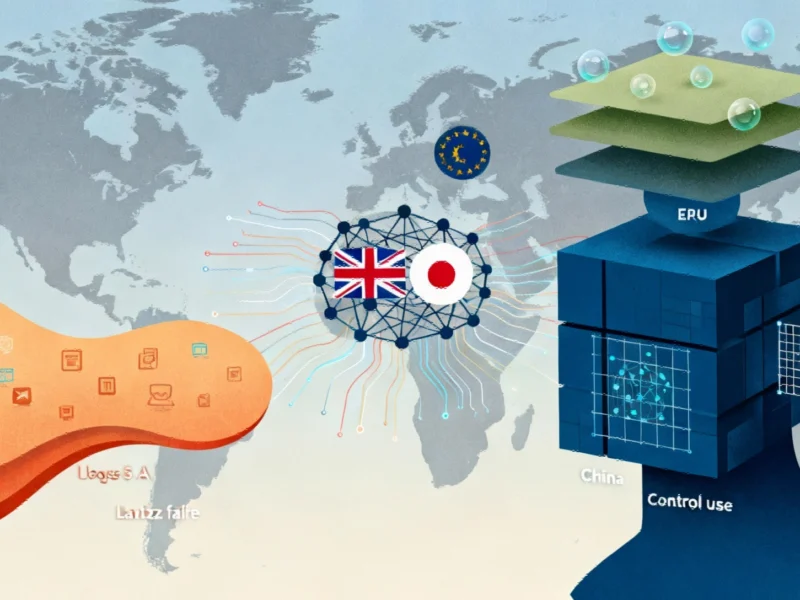According to TechRepublic, Microsoft has signed a $9.7 billion deal with Sydney-based data center provider IREN to secure AI cloud capacity for the next five years. The agreement gives Microsoft access to accelerator systems built on Nvidia’s GB300 architecture, with IREN committing to purchase $5.8 billion worth of GPUs and related equipment. Microsoft becomes IREN’s largest customer, generating $1.94 billion in annualized revenue over the contract period, and has already provided a 20 percent prepayment according to IREN CEO Daniel Roberts. This follows Microsoft’s similar $19.4 billion deal with Nebius in September for AI infrastructure from a New Jersey data center. This massive investment reveals the intense pressure on cloud providers to secure AI capacity.
The AI Infrastructure Gap Widens
What we’re witnessing is a fundamental mismatch between AI demand and available infrastructure that even Microsoft’s $50 billion annual capital expenditure budget can’t immediately solve. The hyperscalers are discovering that building new data centers from scratch involves regulatory hurdles, community resistance, and power availability challenges that can delay projects by 18-24 months. Meanwhile, the AI boom waits for no one – every month without sufficient GPU capacity means lost market share to competitors. This explains why Microsoft is willing to pay premium prices for existing capacity from operators like IREN, essentially renting infrastructure while their own builds catch up. The Nvidia GB300 systems at the heart of this deal represent the cutting edge of AI acceleration, but securing the physical infrastructure to run them has become the real bottleneck.
The Crypto Miner Transformation Accelerates
The IREN deal underscores a remarkable industry transformation where former cryptocurrency mining operations are becoming critical infrastructure providers for the AI revolution. Companies like IREN, CoreWeave, and HIVE Digital Technologies bring exactly what hyperscalers need: existing data center facilities, established power contracts, and deep expertise in managing high-density GPU workloads. Their transition from crypto mining to AI infrastructure is surprisingly natural – both require managing thousands of GPUs in energy-efficient environments with reliable cooling systems. What started as a niche adaptation is becoming a major business model, with CoreWeave’s market capitalization tripling since its March NASDAQ debut. These companies essentially serve as GPU capacity arbitrageurs, buying hardware at scale and reselling compute time to cloud giants desperate for immediate capacity.
The Multi-Billion Dollar Bet
While the current AI infrastructure shortage makes these deals seem logical, there are substantial risks that could leave Microsoft and others with expensive stranded assets. The AI market is still in its explosive growth phase, but history shows that technology adoption curves eventually flatten. If AI application revenue fails to meet the trillions of dollars in projected infrastructure spending, these long-term contracts could become financial anchors rather than competitive advantages. Microsoft’s approach of spreading bets across multiple providers – IREN, Nebius, and their own builds – represents a hedging strategy against this uncertainty. The 20% prepayment to IREN suggests Microsoft wants to lock in capacity quickly, but also indicates the leverage infrastructure providers currently hold in negotiations.
Where This Leads the Industry
Looking 12-24 months ahead, this deal signals several inevitable industry shifts. First, we’ll see more specialized infrastructure providers emerge, creating a layered cloud market where hyperscalers both compete with and depend on smaller operators. Second, the value of existing data center real estate with available power and cooling will skyrocket, potentially creating a new class of infrastructure REITs focused on AI-ready facilities. Third, Microsoft’s aggressive moves suggest they’re preparing for OpenAI’s transition to a for-profit company and potential IPO, ensuring they have the capacity to support what could be explosive growth in ChatGPT and related services. The OpenAI partnership gives Microsoft both motivation and insight into future demand patterns that smaller competitors lack.
The Infrastructure Arms Race Intensifies
Ultimately, Microsoft’s IREN investment reflects a strategic calculation that controlling AI infrastructure may be more valuable than owning specific AI models. While much attention focuses on which company develops the best AI, the real competitive advantage may lie in who can deliver that AI at scale, reliably, and cost-effectively. As AI models grow larger and more complex, the infrastructure required becomes increasingly specialized and capital-intensive. Microsoft’s willingness to commit nearly $30 billion across just two infrastructure deals suggests they see this as a winner-take-most market where being second in capacity could mean permanent also-ran status. The next phase of the AI revolution won’t be fought in research labs alone, but in data centers across the globe.




